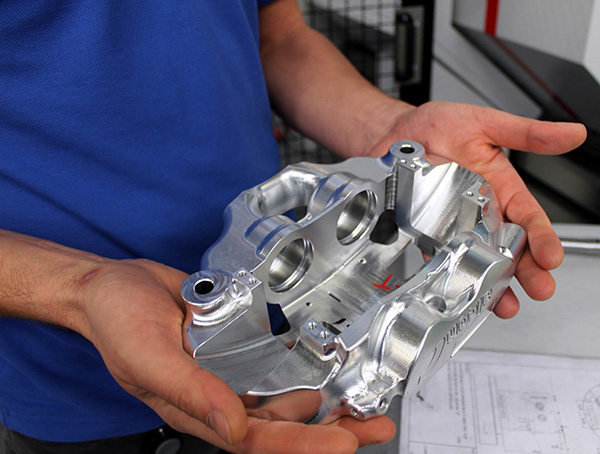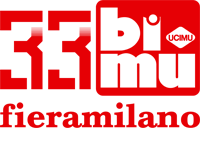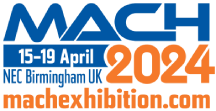Established in 1983 by engineer and sports car racer John Moore, Alcon Components initially made brakes for Audi Sport’s Group B Quattro rally cars.

Today, the Tamworth-based company provides braking solutions such as discs, callipers, cylinders, valves, balance bars, pedal boxes, clutches and much more for the top echelons of motorsport and specialist markets. It is this reputation in motorsport that has led the company to Open Mind and its HyperMill CAM software.
Alcon Components designs, manufactures and supplies braking solutions to some of the world’s most prestigious brands, including Audi, Bentley, Brabus and Jaguar Land Rover. The company has products that can be found in anything as diverse as the extreme 900 bhp/tonne Ariel Atom 500 and the 225 mph Noble M600, through to military vehicles, armoured SUVs and anything in-between. To cope with the capacity demands of up to 500 discs a week, Alcon has recently invested in three new Doosan vertical turning lathes (VTLs) for its disc machining line, which is yielding a 30 to 40% cycle time improvement. The Doosan VTLs follow a considerable investment in machining centres that include a Doosan Mynx 6500/50, a DMG Mori NHX 4000 and a Hermle C32U.
When it comes to machining brake callipers, a solid aluminium billet will go through a complete range of five-axis machining cycles with four individual operations. Commenting upon this process, production engineering manager Brian Cutler says: “The first operation will be a lot of roughing on a VMC, which is programmed with HyperMill. We’ll then hold the callipers on their side and machine all the internal features on a five-axis machine. We flip it over again to finish the top faces and it will be turned once more for the final operation, which is the machining of the precision piston bores.”

Whereas many callipers may be small volumes or bespoke specialist products, the company is also manufacturing over 100 callipers per week for a high-end sports car.
Referring particularly to the company’s investment in Open Mind’s HyperMill CAM system, Alcon’s Adam Saweczko says: “The reason we moved from another CAM system to HyperMill was the stability of the software. Since opting for HyperMill, there has been a huge improvement in performance and calculation times. It calculates the paths with greater speed and is far more reliable than the software we used before. Our previous CAM software was problematic, sometimes crashing up to six times a day.
“This crashing was due to the complexity and data requirements of the parts, and the respective programs that we generate here at Alcon,” he continues. “The HyperMill system is very flexible, it allows us to copy proven methods from one program to another, which saves significant time. We can work with a number of windows open at the same time and this also reduces our programming times.”
Referring to the HyperMill tool library, Saweczko adds: “We can store more detail than ever before. We can now store all the cutting data, tooling suppliers and even the product codes. It has become the one-stop solution for our tool management data.”
Commenting upon the five-axis credentials of HyperMill, he says: “The five-axis routines are very easy to use. You no longer have to go into hundreds of different settings to get the job done. The parts we are making are quite complex, but our new CAM software has given us the ability to take existing programs and copy them over to HyperMill. So, existing and proven cycles can be applied to the existing part.”

Alcon manufactures its automotive brakes in sets, with left and right hand parts. Commenting on this requirement, Saweczko states: “Typically, HyperMill can save 50% on programming times as it can be done instantly. This also saves time where we have parts that are symmetrical to other components we machine. We actually save a lot of time by programming one half of a part and performing a mirroring routine, so the next component is produced automatically. The cutting conditions are respected also, meaning that if the one half is climb-cutting, then the mirrored half would also climb cut.”
Confidently backing this statement, Cutler adds: “In terms of improvements with HyperMill, we’ve made some pretty big savings in programming times. I would say that a complex five-axis calliper previously took upwards of four weeks to program with our previous CAM system; this is now less than 2 weeks with HyperMill. Producing brake callipers, we typically do a left and right-hand calliper and the first side takes 3-4 weeks to program. Mirroring the first calliper would then take up to another week. The mirroring function in HyperMill is really impressive and enables us to produce the opposite mirrored part in less than half a day.”
The feature recognition package has also been a major benefit for this progressive brake manufacturer, as Saweczko states: “For example, we have an M4 tapped hole and, to conduct that operation, we will need a tapping cycle, a drill and maybe even a countersink operation. HyperMill’s feature recognition will automatically recognise the task in hand and apply the correct tools and machining procedure.”

Alluding to the benefits of purchasing HyperMill, Saweczko concludes: “We are very pleased that we have moved over to HyperMill from another CAM suite. It has not only improved our product quality and surface finishes, it has also improved the working environment because staff are not as frustrated as before. This is because the software is more reliable and easier to work with.”
For further information www.openmind-tech.com














